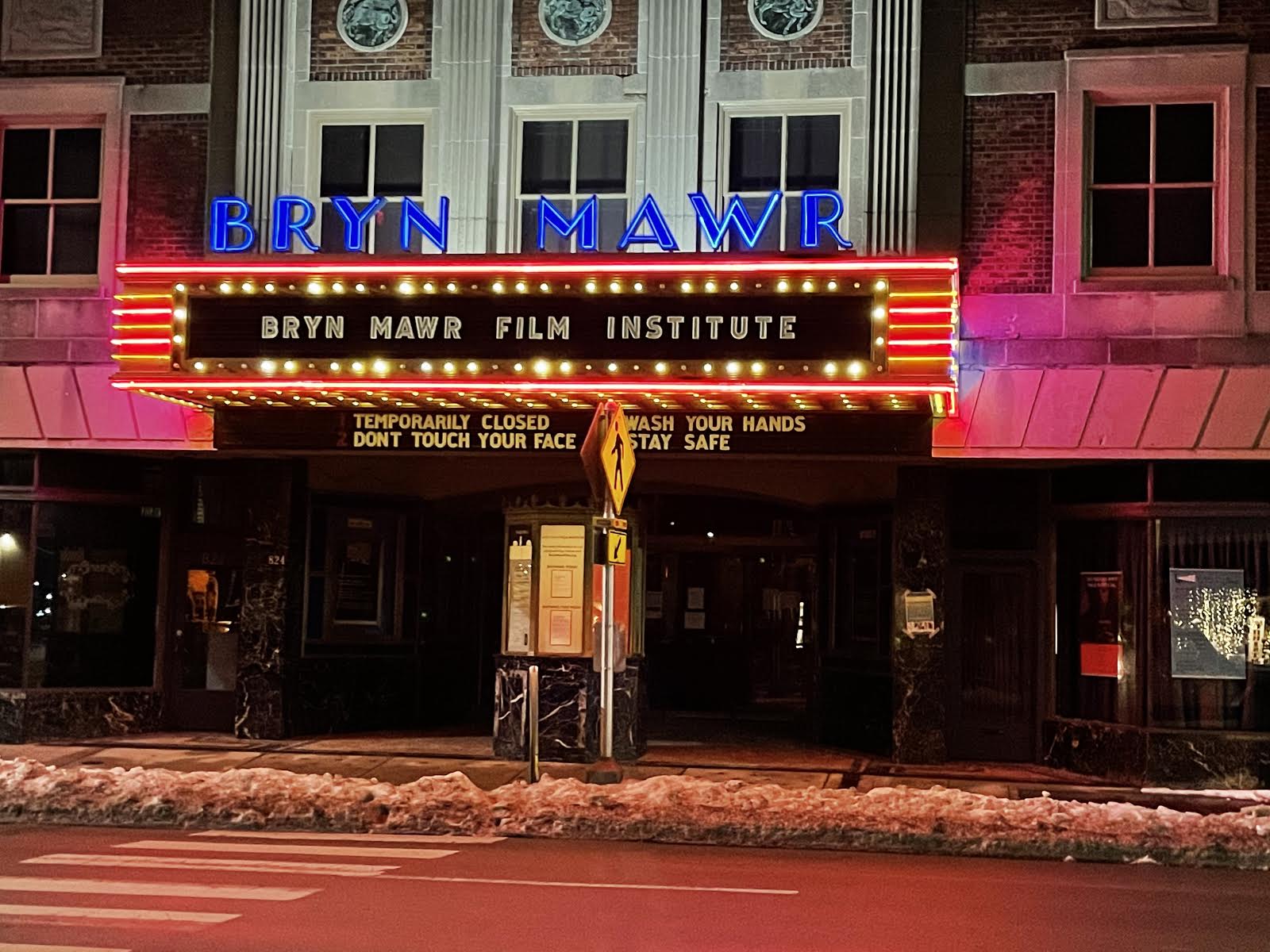
29 Dec After a Tough 2020, Philadelphia Movie Theaters Eye the Post-Pandemic Future
BY STEPHEN SILVER
Ever since the coronavirus pandemic forced the closure of most movie theaters in March, a frequent refrain among many cinema enthusiasts is that they’ll get back to in-person moviegoing as soon as there’s a vaccine.
With the approvals of vaccines from Pfizer and Moderna, that day is suddenly looking a lot closer. But whenever movie theaters get back to regular business, the cinema landscape in the Philadelphia area is going to look quite a bit different from how it did before COVID.
Ritz at the Bourse, the Old City theater that was long the city’s home for The Rocky Horror Picture Show, The Room, and more esoteric indie and international fare, shut down for good in January, before the pandemic. The Riverview in South Philly, the city’s largest multiplex, announced in November that it was closing permanently, despite previously announced plans for a remodeling.
Those two theaters were very different from one another in many ways, large and small. But their closings represent a huge loss for the local cinema community that goes beyond the subtraction of nearly 25 screens. Without the Bourse, the type of under-the-radar films that long filled those screens may not find a home locally, while the often-raucous Riverview was a communal place, and the best theater in the city to see a movie with a big crowd.
As for the area cinemas that are still in business: I talked to some of the venue operators, and while they’re all looking forward to getting back to in-person showings, most aren’t entirely clear on exactly when that will be. But in the meantime, many of them are making preparations, which in nearly every case includes raising money.
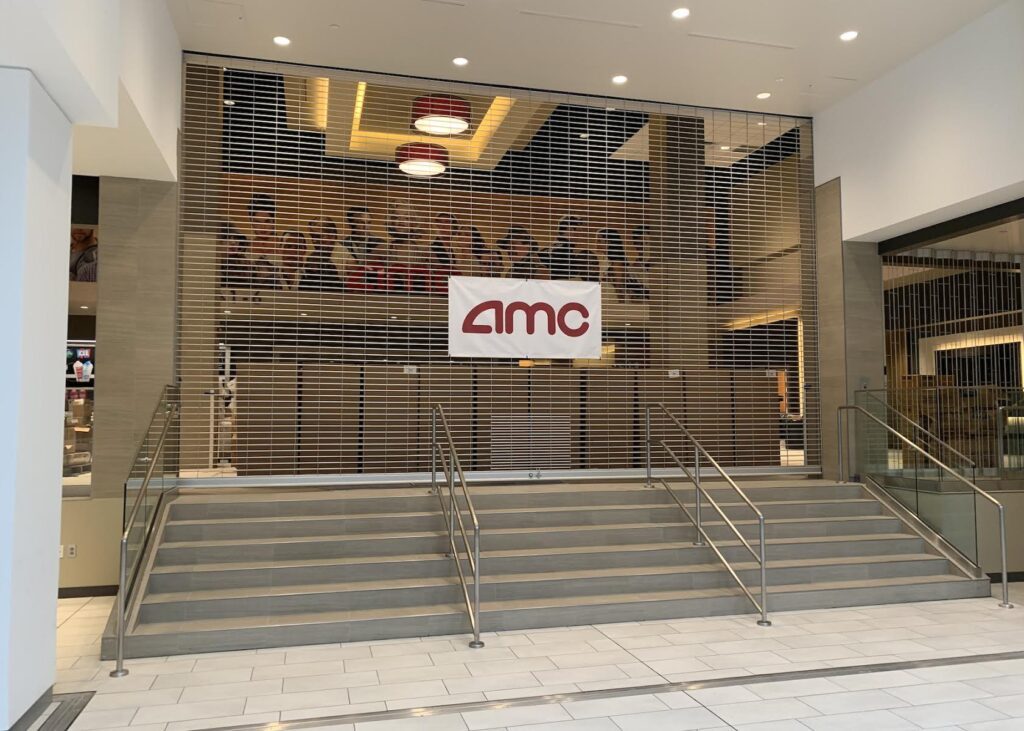
The pandemic follows what was already a lengthy period of flux for Philadelphia-area movie theaters. After Philadelphia went nearly 20 years without a multiplex in Center City, the AMC Dine-In Fashion District 8 opened its doors in November 2019–only to close, temporarily, when the pandemic began five months later. While AMC reopened some theaters in the suburbs in August, the Fashion District location has remained closed; an AMC representative did not reply to an email requesting comment about plans for reopening. Such a reopening will only happen if AMC remains solvent, and the company warned in an SEC filing in early December that they may run out of money by January. However, the coronavirus aid package agreed to by Congress this week includes $15 billion for cultural institutions, which includes movie theaters.
As for the remaining Ritz theaters in Old City, the Ritz Five reopened between August and December, while the Ritz East remained closed. When can we expect to see those again? “Both theatres are slated to reopen when we can,” Landmark spokeswoman Margot Gerber said in an email.
Then there is the saga of the Lightbox Film Center, the art house theater that closed in its original location at International House in West Philly last year, after that building was sold. The Lightbox, early this year, set up shop at a new location at Gershman Hall, at the University of the Arts on South Broad Street–all too briefly, it turned out. The new Lightbox held its premiere screening of Matthew Barney’s Redoubt on February 20, and another of Bela Tarr’s Satantango the following day.
“Both screenings were very well attended and it felt great to be in our new home,” Jesse Pires, the Lightbox’s executive director, said of the February premiere. “We then screened the documentary Punk the Capital the following week and were looking ahead to a big Romanian series in March. Of course, that never happened and we’ve been screening films virtually ever since.”
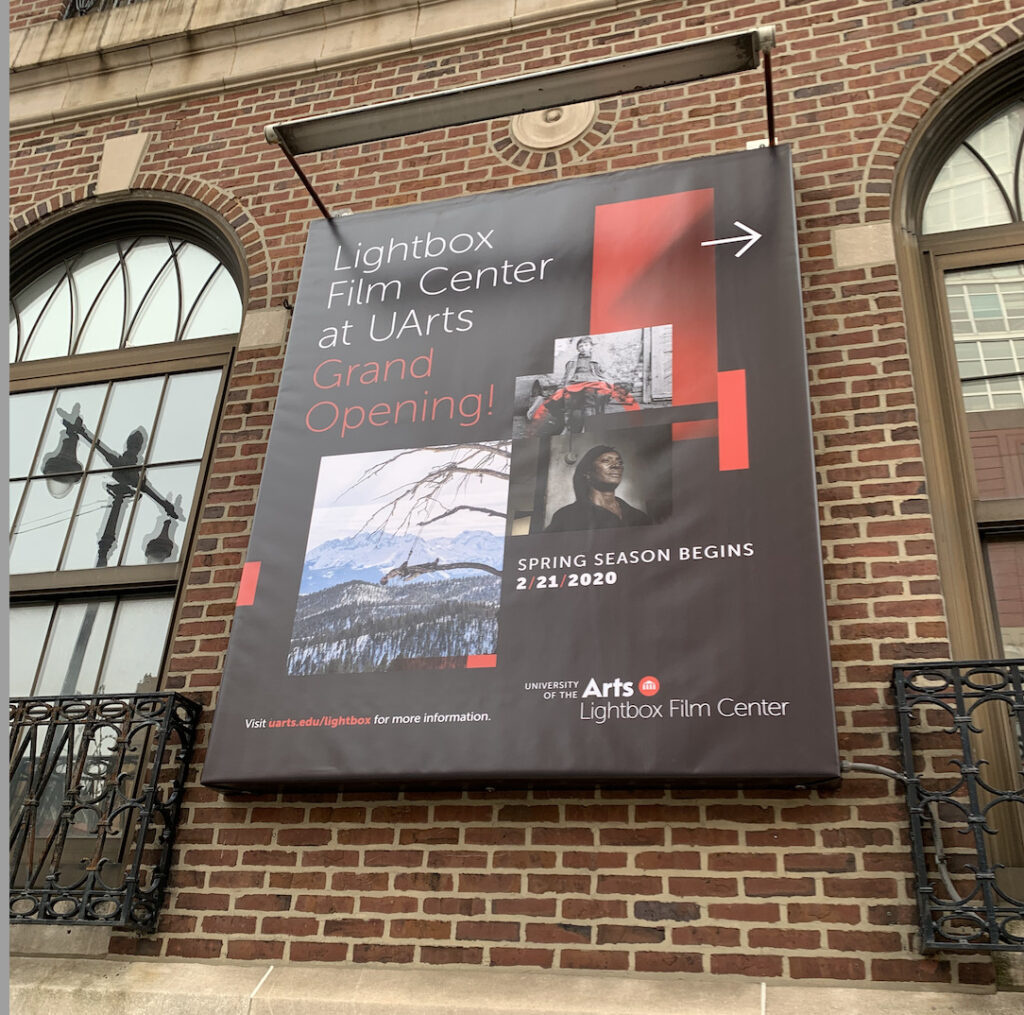
“Having just brought Lightbox to UArts in January, I really felt like I was able to hit the ground running only to have to slam on the brakes abruptly,” he said. “While it’s not ideal, we’ve been able keep our programming active in an online capacity so that’s been an interesting development.”
The Lightbox, like many independent theaters around the country, launched a “virtual cinema,” in which users could digitally rent first-run movies, with the theater getting a percentage of the proceeds.
Pires said that while there aren’t specific plans for an in-person reopening date, “I hope we’ll be back up and running in a matter of months.” He added that the theater’s long-term plans for a new screening room on a separate floor of the building are still on, and they’re continuing to raise money towards that.
Another theater that went the virtual cinema route is the Bryn Mawr Film Institute on the Main Line, which also had to close its four screens in March; the theater is calling their rentals and other online programming offerings “Theater 5.” Samuel Scott, the institute’s executive director, acknowledged that rentals have been somewhat spotty, but that BMFI’s other online programming has been more popular.
“Many of the first-run titles, having never played in theaters, have not been marketed by the films’ distributors,” Scott said. “Folks seem to be interested in reading about these titles, as evidenced by BMFI’s extremely high email opening and click-through rates, but when it comes to actually pulling the trigger to rent a title, many stay on the sidelines. Where we really distinguish ourselves is with the Film Studies Online programming, including all of our free discussions, and participation in FSO has been stellar.” Scott added that the pandemic has seen BMFI’s online audience become more national and even international, with viewers tuning in to their programming from everywhere from Paris to Beijing and Nairobi.
Scott said that BMFI has been “eyeing” reopening ever since the original shutdown in March, and was even preparing to offer private theater rentals before the latest shutdown by the governor in December.
“The next possibility for reopening will most likely be in January, should the ban on theaters’ operating be lifted,” Scott said. He added that he’s been hearing from members and attendees that “despite the fact that they are aching to return to BMFI to watch their favorite films and go to film classes and lectures together, they will not be ready to return until they have been vaccinated.”
BMFI is clear that it has depended a great deal on the support of its members.
“Ask almost any of our peer theaters, and except for those who were able and willing to operate drive-ins during the summer, the only meaningful income for them, and us, has been provided by donations and memberships,” Scott said. “BMFI is blessed to have an abundance of loyalty and support from its members, and as demonstrated by our successful–and might I add, ongoing–Annual Appeal, that support has allowed us, at least so far, to fund our core staff and provide the wonderful plethora of online programming.”
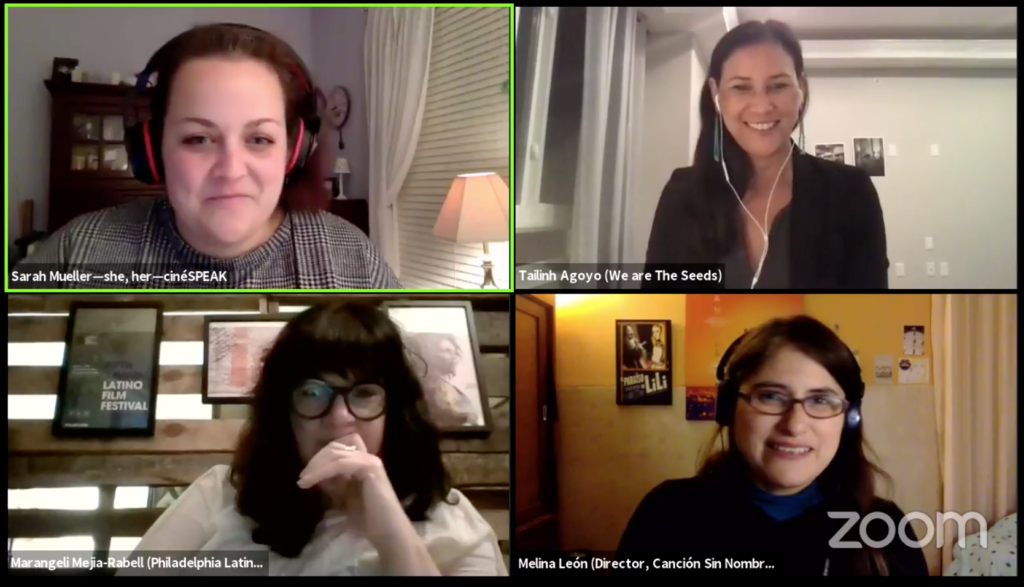
The Philadelphia Film Society has operated such a drive-in venue, PFS Drive-In at the Navy Yard, for much of the pandemic, while its city venues (the Philadelphia Film Center and PFS Roxy) have been closed since March. PFS used the Navy Yard for several screenings at the Philadelphia Film Festival in October, with the rest of the screenings held on a virtual platform. PFS will run movies, both first-run and special holiday showings, at the drive-in through the end of the year.
Following a “Save Our Screens” campaign in July, the Film Society has spent the month of December, once again, fundraising aggressively.
“For the last nine months, the Philadelphia Film Society has been teetering on the precipice of uncertainty—having to identify and sustain new ways of generating up to 70% of its annual operating budget,” the Film Society’s Staff and Board said in a fundraising email on December 13. The email announced a GoFundMe campaign, illustrated with a picture of the Rocky statue, aiming to raise an additional $30,000 by December 20; it had reached that goal as of that night.
“Thanks to you, we made it through to the end of the year. But we urgently need your help again! Our theaters remain closed, our programs and services remain at risk, and several months still remain between now and the re-opening of our theaters,” a subsequent email said.
While Philadelphia has lost movie screens in 2020, one new one is expecting to open in 2021–the one run by cinéSPEAK, the same organization that produces this publication.
“We have been in conversation with the good people at Calvary Center for Culture and Community since early 2019,” Sarah Mueller, cinéSPEAK’s founder and director, said. “By March, we had plans drawn up and a fantastic build-out team on board that would have enabled us to kick off construction in early April. We were on track to open doors by mid-June of this year.”
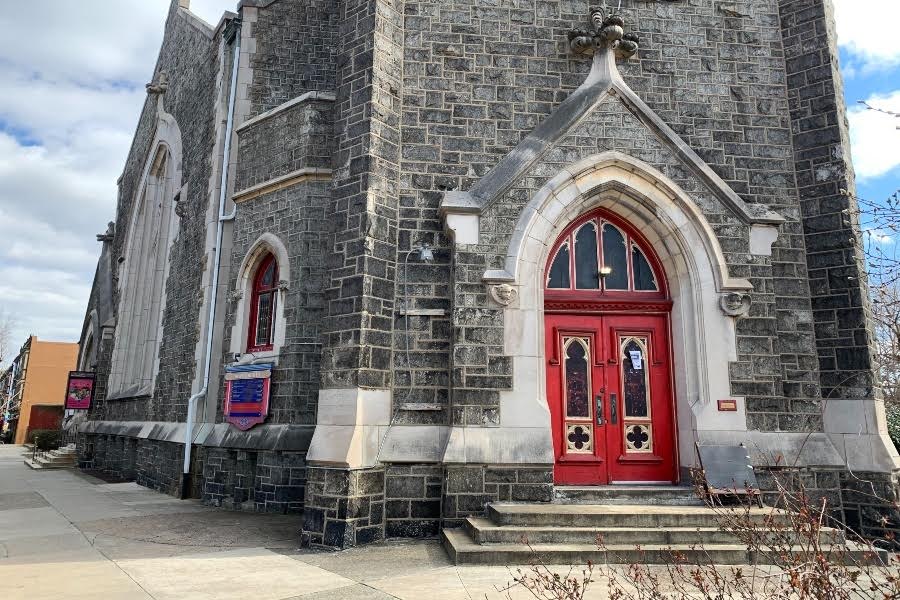
When the pandemic disrupted those plans, cinéSPEAK also went virtual– and was even named the city’s Best Movie Theater by Philadelphia Magazine. Now, cinéSPEAK is hoping to start construction by the middle of 2021 for the venue on Baltimore Avenue, while also fundraising for the construction and its other operations.
“It’s been a really fun ride partnering with some of our favorite independent distributors and partners to premiere films previously only available in theaters,” Mueller said. “We hosted some of the filmmakers—living outside the U.S.—for online conversations. We saw this moment as a wonderful opportunity to wade into theatrical exhibition water and connect our audience with the type of provocative content they can expect to experience every week at our future brick-and-mortar cinema home.”
Since theaters were last open, many things have changed. Movie release schedules have been rearranged repeatedly, with releases pushed back multiple times, and Warner Brothers even announced that its entire 2021 release slate will debut on HBO Max as well as in theaters.
Likely before long, we’ll be back in cinemas, enjoying popcorn, coming attractions, and the movies themselves, with the accompaniment of an enthusiastic crowd. We don’t know when that will happen, but we know the day is coming.
“I just want to see the city recover and our arts and culture sector rise to meet the challenges of the post-COVID world,” Lightbox’s Pires said.
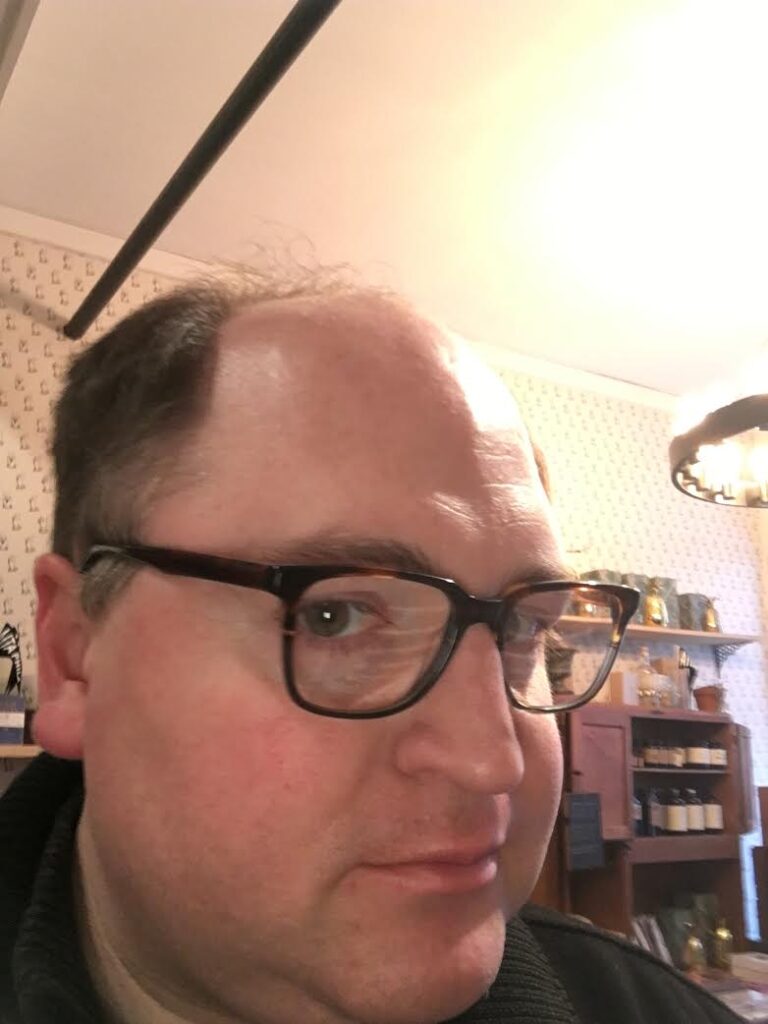
Stephen Silver is a journalist and film critic who has lived and worked in the Philadelphia area since 2005. He is the cofounder of the Philadelphia Film Critics Circle, and his work has appeared in the Philadelphia Inquirer, Philly Voice, Broad Street Review, Philadelphia Weekly, New York Press, Splice Today, The Jerusalem Post, RogerEbert.com and many other outlets. In 2009, he became the first American journalist to interview a sitting FCC chairman and sitting host of “Jeopardy” on the same day. Stephen lives outside Philadelphia with his wife and two sons.

Sorry, the comment form is closed at this time.